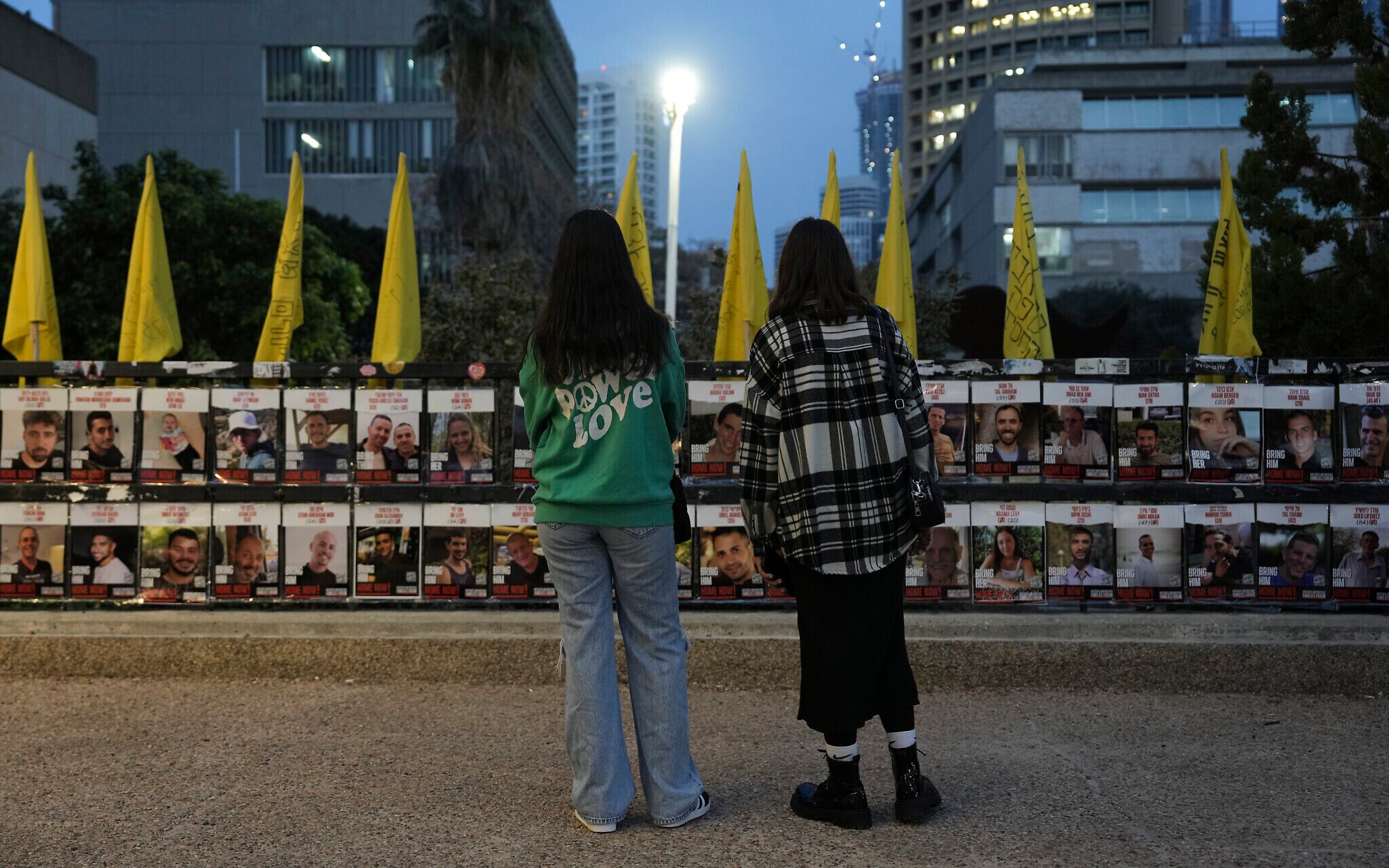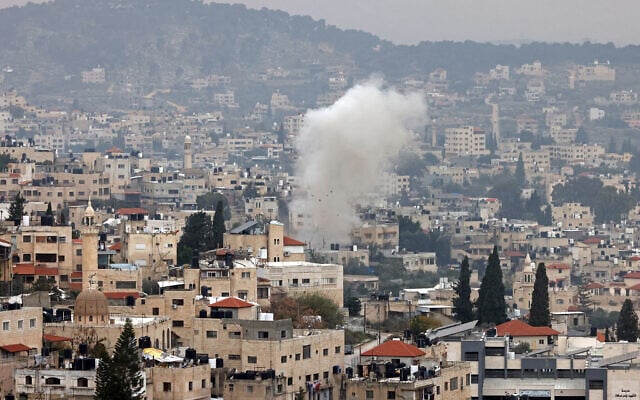



The Times of Israel is liveblogging Saturday’s events as they happen.
Government ministers vote in favor of approving hostage-ceasefire deal with Hamas
The full Israeli government votes in favor of approving the hostage-ceasefire agreement with Hamas, after the security cabinet gave its blessing to the deal on Friday.
There is no immediate statement from the government on the vote, which Hebrew media outlets report 24 ministers voted in favor of and eight opposed.
The deal is slated to enter into force on Sunday, when the first three Israeli hostages are to be freed. Thirty-three hostages are to be freed in the first, 42-day phase of the deal.
Now that the government has approved the agreement, opponents of the deal can petition the High Court of Justice against the release of Palestinian security prisoners who are set to be freed, though the court is unlikely to intervene.
PA makes deal with Jenin Battalion, ending standoff in northern West Bank city and camp

The Palestinian Authority has reached an agreement with the Jenin Battalion that will end over a month-long standoff in the northern West Bank city and adjacent refugee camp, a Palestinian official confirms to The Times of Israel.
The PA has been conducting a counterterrorism operation in Jenin since last month, targeting the so-called Jenin Battalion, which is made up of operatives affiliated with terror groups such as Hamas and Palestinian Islamic Jihad.
Ramallah has blamed Iran for funding and arming the Jenin Battalion and other armed factions throughout the West Bank. Fifteen Palestinians were reportedly killed throughout the operation, including six members of the PA security forces, eight civilians, and one terror suspect. A handful of Jenin Battalion members have also been arrested by PA forces.
The armed groups have gained significant prominence in the northern West Bank over the past several years, with the PA seen to have largely lost control over the area.
The PA launched its counterterrorism operation ahead of US President-elect Donald Trump’s return to the White House, as it seeks to demonstrate its ability to maintain stability in the West Bank.
Early on in the operation, the Jenin Battalion managed to steal a pair of vehicles belonging to the PA security forces, who subsequently intensified the raid of the refugee camp.
دخول الأجهزة الأمنية الفلسطينية إلى مخيم جنين والسيطرة عليه والقضاء على جـ ـرذان كتيبة جنين ومرتزقة إيران ????????????
أهل غزة في انتظاركم أيضًا يا فرسان فلسطين، لنبني الوطن معًا ونقضي على آخر أوكار الإخوان ومرتزقة إيران في غزة..???? pic.twitter.com/VDah7Vc7Hc
— مصطفـ????ـى عصفــور (@ustafa_ad) January 17, 2025
While the operation has continued, the sides have held negotiations aimed at reaching a truce under which the armed groups would hand over their weapons in exchange for immunity.
A deal was on the verge of being reached early this week, but talks blew up following a pair of Israeli airstrikes in the camp on Tuesday and Wednesday that killed 12 people including civilians, two Palestinian officials told The Times of Israel on Thursday.
The IDF had held off on conducting any strikes or raids in Jenin when the PA began its raid but ended that policy this week.
One of the Palestinian officials speculated that the decision was pushed by far-right elements in the Israeli military and government who don’t want the PA to succeed in its effort.
The official said the strikes may have also been designed to scuttle the brewing truce — something that Ramallah believes would significantly calm tensions in the northern West Bank.
The talks resumed later Thursday, and the sides managed to reach an agreement Friday evening, the official says.
The deal requires specific members of the Jenin Battalion to hand over their weapons and allows the PA to operate freely in the refugee camp, the Palestinian official says.
PA vehicles have already been filmed entering the refugee camp this evening with bomb-squad units to detonate explosives that the Jenin Battalion placed throughout the area to harm Israeli and PA forces.
Majority of public backs continuing hostage deal after first phase — poll

A majority of the Israeli public supports continuing the hostage deal into the second phase, a poll aired on the Kan public broadcaster says.
Fifty-five percent of the public wants the deal to continue, even though that means ending the war, the poll reveals. Twenty-seven percent of the public believes the war should resume after the first phase while 18% say they don’t know.
Prime Minister Benjamin Netanyahu had previously pledged to continue the war until Hamas’s military and governing capabilities have been dismantled. He has reportedly indicated to far-right ministers in his cabinet that he still plans to do so after the first phase.
The Likud party even issued a statement yesterday claiming that US President-elect Donald Trump has given Netanyahu assurances that Israel will be able to resume fighting after the first phase.
During the first phase, Israel and Hamas are supposed to hold negotiations regarding the terms of the second phase during which the remaining living hostages will be released. The mediators will serve as guarantors to ensure that the parties remain at the table until an agreement on the second phase is reached, allowing the ceasefire to extend. The second phase would conclude with a permanent ceasefire.
The Kan poll also shows that 62% of the public supports the deal thus far, compared to 18% who are opposed and 20% who said they are undecided.
Even among coalition voters, 45% of respondents support the deal, compared to 30% who oppose it.
However, 46% of coalition voters believe that Israel should resume fighting in the second phase, in apparent violation of the deal’s terms and at the expense of the hostages slated to be released then. Thirty-five percent of coalition voters back continuing the deal into the second phase and 19% of them said they don’t know.
Forty percent of the public thinks there’s a medium chance that the deal will extend into the second phase while 23% think there’s a low chance that it will and 21% think there’s a high chance. Sixteen percent said they were unsure.
Asked which party was responsible for the fact that it took nearly 470 days to reach the agreement, 36% said it was Hamas, 25% said it was Israel, 22% said both sides equally while 17% said they didn’t know.
